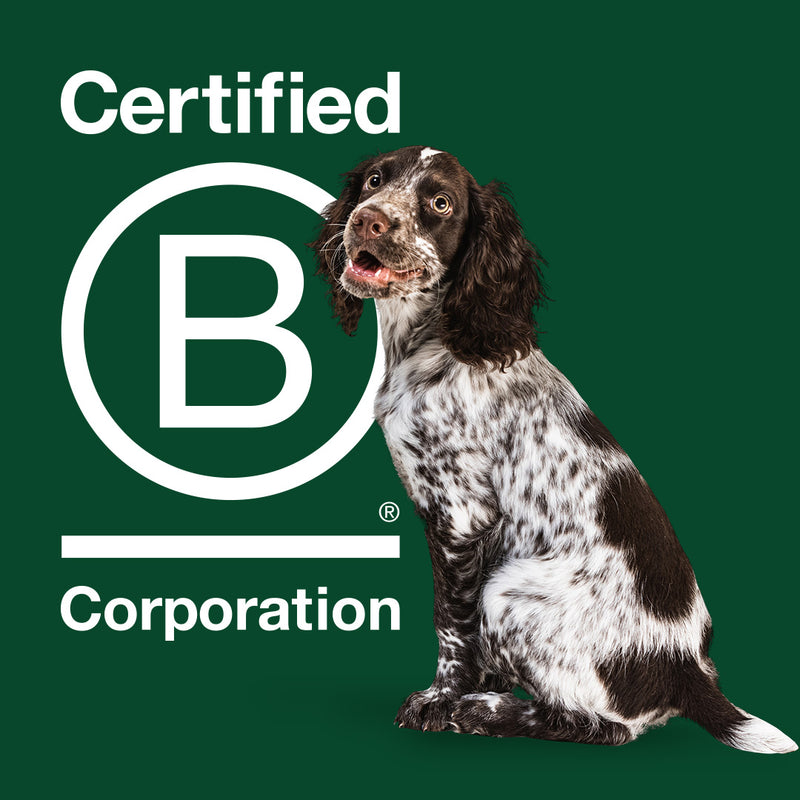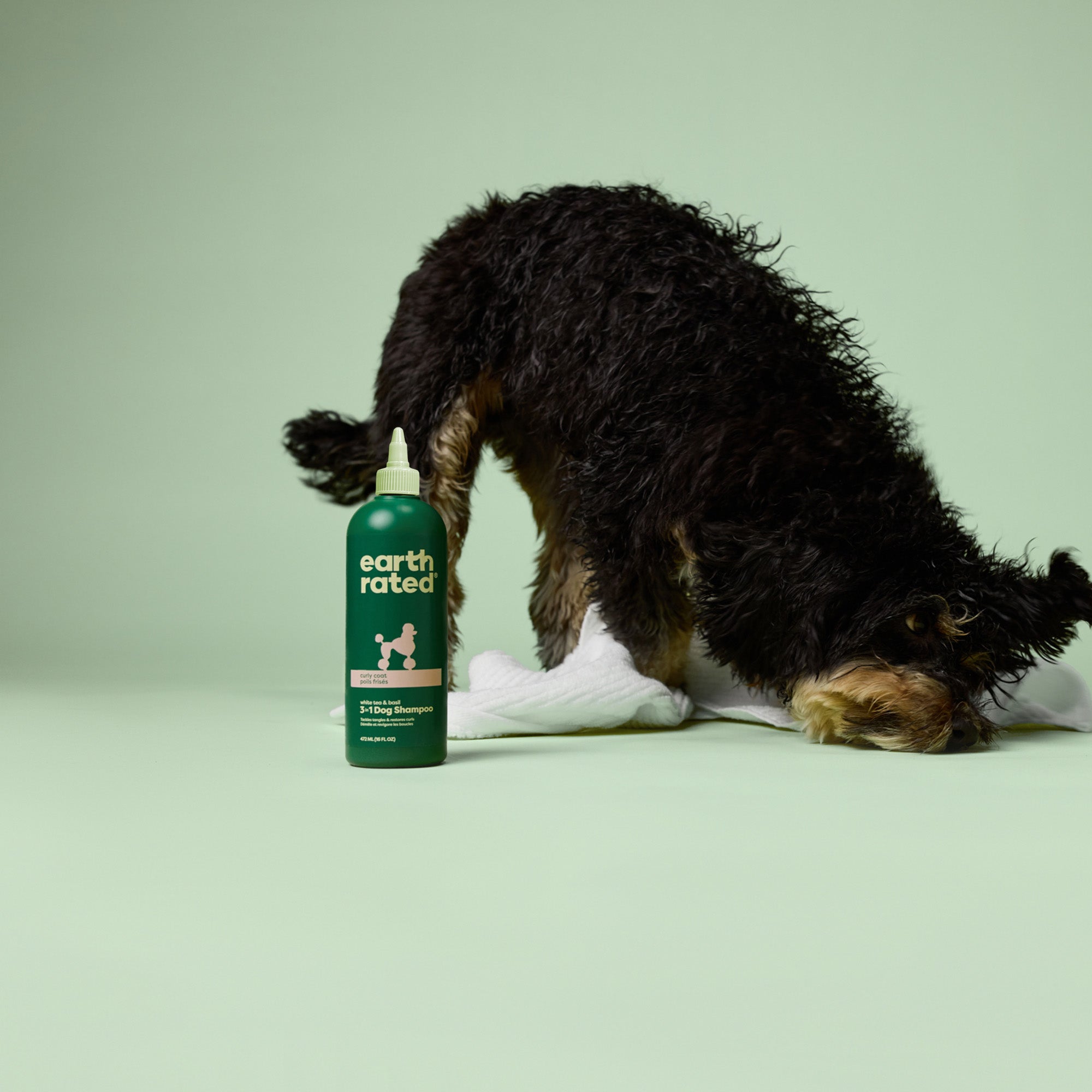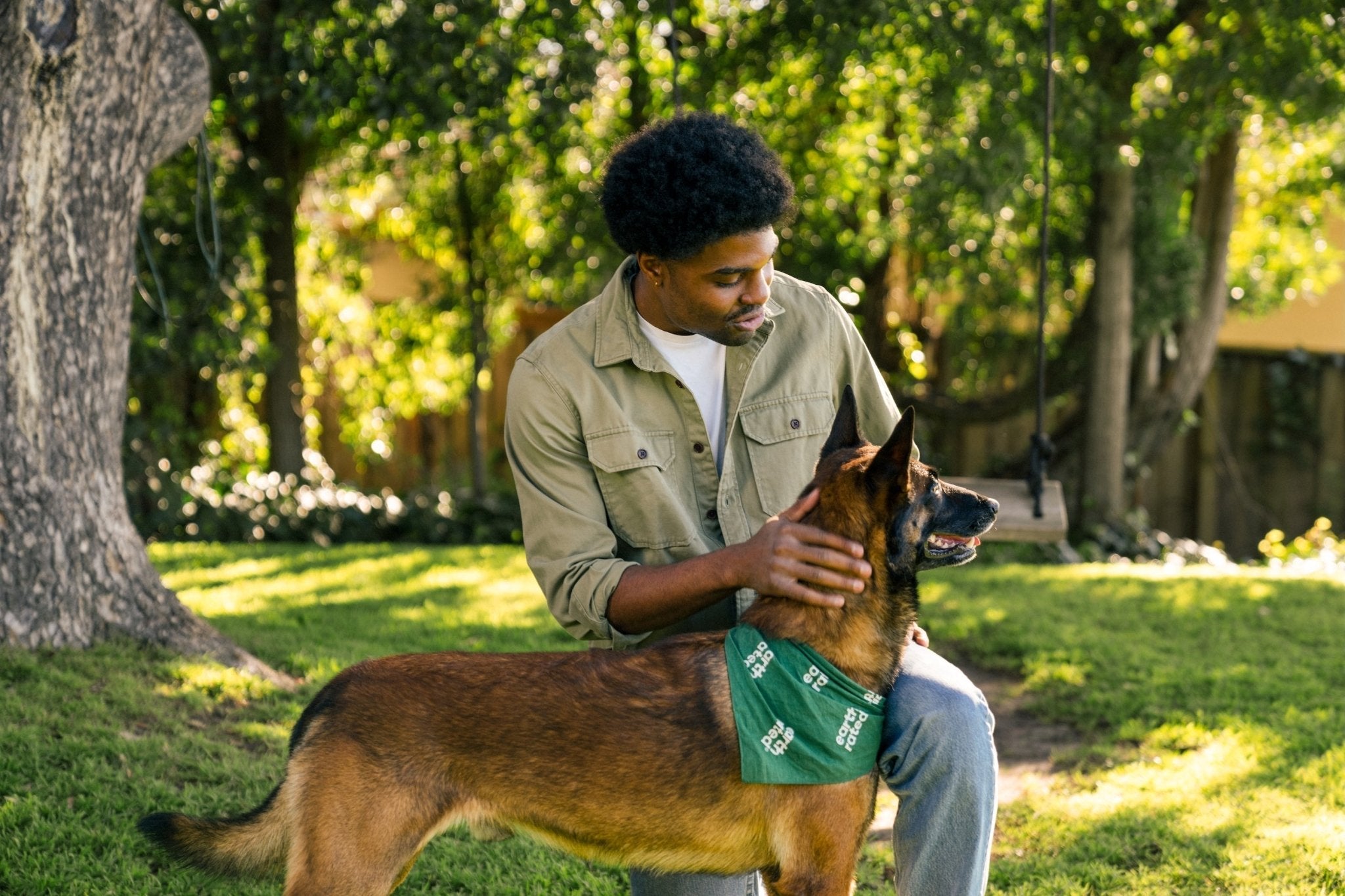Let's face it, puppyhood can sometimes be a whirlwind of chewed shoes, questionable bathroom habits, and enough zoomies to power a small city! But amidst the adorable chaos, one crucial element is important to make sure your pup thrives: vaccinations.
Dog vaccinations are the ultimate bodyguards against a villainous cast of exceptionally serious diseases. As Isa-May Pellerin, a certified animal health technician, explains, “The diseases prevented by core vaccines can be deadly.”
Vaccinations aren't a one-time shot at puppyhood, though. Your dog still needs vaccinations as they get older. We’ll explore why these vaccines are so important and dispel common myths about dog vaccinations.
Understanding Dog Vaccines
All dog owners will be introduced to dog vaccines at some point. Puppy owners have probably seen their vet pull vaccines out several times, but even adult dogs need boosters.
But many of us don’t understand how vaccines work or what each of these shots are for (and, understandably, many pet owners question if their pups need so many!).
Vaccines provide a blueprint for your dog’s immune system that describes a particular virus or bacteria. After being introduced to this blueprint, your dog’s immune system can recognize and destroy threats before they take up shop.
Typically, these blueprints are inactive or partial forms of the virus or bacteria they protect against. Our dogs don’t always need the full blueprint. Even if their immune system only recognizes half of a virus or bacteria, it’s enough to make it effective.
Each vaccine usually targets a single virus or bacteria, so your dog typically needs several to be protected from major threats.
Core vs. Non-Core Vaccinations
There are two main types of canine vaccinations: core and non-core. Core vaccines are recommended for all dogs, but non-core vaccines may be necessary for only some dogs.
Isa-May recommends that dog owners keep their dogs’ core vaccines up to date, at the very least. For the non-core vaccines, she recommends them based on whether the dog is at a higher risk of being exposed to the disease based on their lifestyle.
Kennel cough is a great example of this. Not all dogs are exposed to other dogs, but Isa-May tells us that dogs who get groomed or go to daycare are at a higher risk of the disease. Therefore, the kennel cough vaccine is often recommended if your dog is a typical Leo; a budding socialite! Many daycares and groomers even require it.
Simply put, core vaccines are essential for all dogs. Here’s what’s typically included:
|
Core Vaccine |
Protects Against |
|
A nasty virus that attacks a dog’s respiratory, nervous, and digestive systems. Fatal. |
|
|
A highly contagious virus that attacks the intestines. Fatal. |
|
|
A virus that causes respiratory illness and hepatitis. Fatal. |
|
|
A deadly virus that also affects humans and other animals. Always Fatal. |
Non-core vaccines are more specialized options for dogs with certain risk factors. Not all dogs need these vaccines, but you should consider them in some cases.
|
Non-Core Vaccine |
Protects Against |
Typical High-Risk Situations |
|
Bordetella (aka Kennel Cough) |
Highly contagious respiratory infection |
Boarding facilities, dog parks, groomers |
|
Bacterial diseases spread through contact with contaminated water or wildlife |
Hiking, camping, areas with high wildlife populations |
|
|
Tick-borne illness that causes lethargy and fever |
Wooded areas, areas with lots of ticks |
|
|
A flu-like illness that’s highly contagious |
Boarding facilities, dog parks, and groomers |
|
|
The “doggy flu” |
Dogs around other dogs |
|
|
Deadly Venom |
Outdoor dogs in the same region as the western diamondback rattlesnake |
While these vaccines are considered “non-essential,” these diseases increase and decrease in prevalence frequently. Isa-May notes that Leptospirosis is becoming increasingly common, it is now being recommended for most dogs. It still isn’t considered a core vaccine, but don’t be surprised if your vet recommends it.
Dog Vaccination Schedule
While vaccines are very important, you can’t just give your dog all the needed vaccines at once and call it a day!
Here’s a quick guide on the ages and stages of vaccination. Of course, every dog is unique, and your dog’s needs may differ slightly from the “average” dog. Always consult your veterinarian for a personalized plan for your dog.
|
Age |
Core Vaccines |
Non-core Vaccines |
|
6-8 weeks |
Distemper, Parvovirus, Adenovirus, Parainfluenza (Usually given in one shot called DA2PP) |
Bordetella |
|
10-12 weeks |
Distemper, Parvovirus, Adenovirus, Parainfluenza |
Leptospirosis Lyme Disease Canine Influenza Bordetella |
|
16-18 weeks |
Distemper, Parvovirus, Adenovirus, Parainfluenza, Rabies |
Leptospirosis Lyme Disease Canine Influenza Bordetella |
|
12-16 months |
Distemper, Parvovirus, Adenovirus, Parainfluenza, Rabies |
Leptospirosis Lyme Disease Bordetella Coronavirus |
|
Every 1-2 years |
Distemper, Parvovirus, Adenovirus, Parainfluenza |
Leptospirosis Lyme Disease Canine Influenza Bordetella Coronavirus |
|
Every 1-3 years |
Rabies |
Depending on the laws in your area, your dog may need to receive their rabies vaccine earlier than 16-18 weeks. Rabies is considered a public health threat as it is exceptionally deadly and passes easily to humans. (There is no treatment for rabies in humans, and only one individual has ever survived the disease. It’s effectively 100% fatal!)
Regular veterinary checkups for your dog are the best way to ensure they receive the necessary vaccines.
The Cost of Vaccinations
Alright, let's talk about the not-so-fun part: the cost of vaccinations. We all know vet bills can easily reach high dollar amounts, sometimes for what feels like mysterious and unexplainable reasons! Vaccines do cost money, but they’re also necessary for your dog’s long-term health (and to obey the law, in many cases).
Luckily, vaccines aren’t hundreds of dollars in most places. They can also prevent you from spending even more in the future. It’s better to spend a few bucks now to prevent an illness than potentially thousands later on treating a serious illness.
Diseases like distemper or parvovirus can land your pup in the doggy ICU, leading to exorbitant vet bills. Even though rabies isn’t curable, it can lead to hundreds of dollars in treatment care to ease your dog’s suffering.
Vaccinations are a wise investment in your dog's health and well-being. They protect your dog from diseases and protect your wallet from higher vet bills in the future!
The exact cost of vaccinations depends on your location, your veterinarian, and the exact vaccines your dog gets. Usually, core vaccines cost around $40 to $75, while non-core vaccines cost around $25 to $40.
Dog Vaccinations: Addressing Common Concerns and Myths
Vaccines are a cornerstone of canine health, but plenty of myths floating around the internet can cloud our judgment. Let’s dispel some of the most common dog vaccination myths.
Myth #1: My indoor dog doesn’t need vaccinations.
Even "indoor" dogs can be exposed to viruses and bacteria. Your dog may not go outside often, but you absolutely do. You can unknowingly bring in viruses and bacteria, especially from very contagious diseases (which tend to be those we vaccinate against).
Your friends who also have dogs can expose your dog to sneaky germs. Even open windows can carry airborne threats, especially in more populated areas. Core vaccinations are crucial for all dogs, regardless of lifestyle.
Of course, proper hygiene, like using dog wipes when your pet gets dirty, can prevent some infections. Your indoor dog likely won’t need non-core vaccines, though. Your vet can help you determine what diseases are common in your area and which vaccines your dog needs despite staying indoors.
Myth #2: Vaccinations make my dog sick.
Vaccinations do have side effects. Isa-May notes, "The vaccinated area can become tender for a while, and pets can feel tired.” Luckily, these side effects typically last only 24 hours.
More serious side effects are rare and usually result from an allergic reaction.
The benefits of vaccinations far outweigh the very short-term side effects your dog may experience. Plus, most side effects dog owners attribute to vaccines may result from the stress of the vet visit - not the vaccine itself.
Myth #3: Vaccines overload my dog’s immune system.
Modern vaccines are formulated in a way that they are completely harmless. The blueprint of the bacteria or virus in the vaccine does not replicate. It’s completely “fake.” Your dog’s immune system will attack it like any other intruder, which is how it learns what the disease “looks” like.
Myth #4: There’s no point in vaccinating older dogs.
Senior dogs need protection, too! They’re more prone to diseases and complications, as their immune system tends to dissipate with age. Regular vaccines ensure your senior pup is as protected as possible.
Puppies and seniors are most prone to disease complications, so getting vaccinated is even more important. Older dogs may even need to be vaccinated more, as their immune system gets tired.
Myth #5: Vaccines are a money-making scheme for vets.
Veterinarians don’t make much money from vaccinations. They’re one of the cheapest procedures to get at the vet, and many vets even offer inexpensive vaccinations without the cost of a vet visit.
Myth #6: Natural immunity is better than vaccinations.
Natural immunity does offer protection from past infections. This process is exactly why vaccines work! They create a fake infection that allows your dog to build natural immunity without becoming sick.
Sadly, though, dogs cannot build natural immunity if the disease kills them. Core vaccines protect dogs from diseases with a high death rate. Relying on real infections to encourage natural immunity is simply too dangerous.
For instance, rabies is 100% fatal. A dog cannot have natural immunity to rabies. But we can teach our dog’s immune system what rabies looks like through vaccines, allowing their immune system to understand what rabies looks like without getting sick.
Vaccination provides a very similar immune response as what follows a natural infection. Natural immunity is not longer-lived or more complete than a vaccine.
Myth #7: My dog only needs core vaccines.
At the very least, get your dog the core vaccines. These protect against extremely deadly diseases.
That said, non-core vaccines protect against diseases that are also potentially deadly. For instance, kennel cough has a fatality rate of as much as 8%. That isn’t as high as rabies, but that’s still a very dangerous disease. That means 2 out of every 25 infected dogs die from kennel cough.
Myth #8: The current vaccine schedule leads to over-vaccination.
A common concern of pet parents today is over-vaccination, the idea that vaccinating a dog too much can weaken their immune system. But this concept is a myth.
Each time your dog’s immune system wins over a virus or bacteria, it typically becomes stronger. That’s because when a virus or bacteria enters the body, the immune system learns it’s bad and makes a note to attack it in the future. That’s how immunity (both natural and from vaccines) works.
Your dog’s immune system also learns what isn’t bad. When an immune system doesn’t learn this well, allergies occur as the immune system attacks harmless particles (like that chicken your dog ate).
The more an immune system is exposed to, the better it works. This is called the “adaptive immune system.”
When vaccines are used correctly, they help the immune system learn - not weaken it.
Conclusion
Vaccines aren’t just something for puppy owners to be aware of. They’re a cornerstone of canine health! Because your dog’s immune system will slowly forget what the vaccines taught them, booster vaccines are important.
Keeping up with your dog’s vaccinations should continue into adulthood, typically at your dog’s annual exam. Most vaccines require a booster every 1 to 3 years, allowing a single annual exam to cover your dog’s vaccine needs.
From muddy walks to routine clean-ups, our plant-based dog wipes have got you covered. Shop now for a cleaner, happier pet.
FAQs
What vaccine do dogs really need?
Dogs really need the Distemper, Parvovirus, Adenovirus, Parainfluenza and Rabies vaccines. These are the core dog vaccinations. DA2PP is a combination shot which includes the 4 vaccines; Distemper, Parvovirus, Adenovirus and Parainfluenza in one shot. The Rabies shot protects dogs against the rabies virus.
How many vaccinations does a dog need?
A dog needs 3 rounds of core puppy vaccinations and then booster shots every 1-2 years throughout the rest of their life. Senior dogs may require more frequent shots as their immune system deteriorates.












